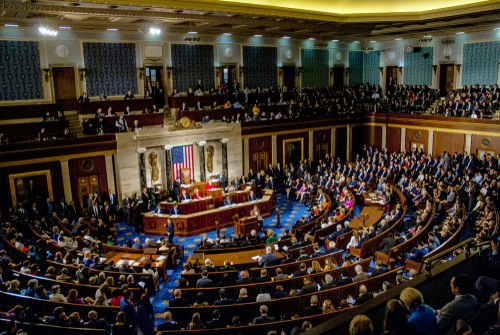A federal court’s refusal to let President Trump freeze $12 billion in foreign aid has reignited a constitutional showdown over whether Congress or the White House controls America’s checkbook.for
Trump’s Executive Order Sparks Legal Showdown
On January 20, 2025, President Trump signed an executive order pausing all new foreign aid obligations, citing a need to review how federal dollars are spent abroad. The move aligns with the administration’s longstanding “America First” policy, which questions the value and oversight of sending billions overseas while American communities face economic and social challenges. Nonprofit organizations, many directly funded by these foreign aid programs, quickly filed suit. They argue the pause violates federal law and endangers global health initiatives, prompting a swift legal battle in federal court.
Federal Government Returns To US Supreme Court In Push To Freeze $12 Billion In Foreign Aid https://t.co/NR9GiO8m2Z
— zerohedge (@zerohedge) August 27, 2025
Just weeks after the order, DC District Court Judge Amir Ali issued a temporary restraining order, blocking the freeze and requiring the State Department to continue disbursing funds. The Trump administration, represented by the Department of Justice, has repeatedly appealed, emphasizing that Congress’s spending power should not force the executive to carry out policies that contradict national interests or the president’s constitutional authority over foreign affairs. Despite an appeals court panel briefly siding with the administration in August, the full court left the injunction in place. This set the stage for an emergency application to the Supreme Court on August 26, 2025.
Separation of Powers and the Constitution at Stake
The core of this legal clash is the balance of power between Congress and the president. Congress appropriates funds, but the executive branch is charged with executing the law. The Impoundment Control Act of 1974 (ICA) restricts presidents from withholding congressionally appropriated money without explicit approval. Legal experts warn that the case tests the very limits of presidential power and Congress’s “power of the purse.” The Trump administration argues that the freeze is a lawful exercise of executive discretion, especially in matters of foreign policy and national security, while nonprofit plaintiffs maintain that the law is clear: once Congress allocates money, the president cannot unilaterally block its use.
Throughout the dispute, the courts have served as the arbiter, with Judge Ali and appellate judges emphasizing the letter of the ICA. The Supreme Court’s upcoming decision could set a crucial precedent for future presidents seeking to assert more control over the federal budget, especially regarding controversial or politically charged spending priorities.
Billions at Stake and the Humanitarian Debate
The immediate consequence of court injunctions is that the State Department must obligate $12 billion in foreign aid by September 30, 2025, or risk the funds expiring. Nonprofit organizations and global health advocates warn that any disruption could threaten critical programs, including efforts to fight HIV/AIDS and provide humanitarian relief. On the other hand, administration officials argue that much of this spending lacks sufficient oversight and accountability, and that pausing or redirecting funds is vital to ensuring taxpayer dollars serve American interests first.
The debate has drawn sharp lines between those who prioritize U.S. domestic needs and constitutional limits and those who argue for continued American engagement abroad. The Trump administration’s critics assert that a freeze could damage America’s global reputation and relationships, while supporters point to skyrocketing federal spending and the need to rein in what they see as out-of-control foreign aid commitments.
America First, Congressional Power, and the Path Forward
This legal standoff has far-reaching implications for the future of U.S. foreign aid and the broader principle of separation of powers. If the Supreme Court sides with the administration, future presidents could have far more latitude to pause or block spending, even over congressional objections. If the injunction stands, Congress’s control over the budget will remain firmly intact, but questions about executive authority in foreign policy will continue to simmer. For conservative Americans who have long demanded fiscal responsibility and a return to constitutional governance, the outcome of this case could mark a turning point in the nation’s approach to both spending and executive power.
While the Supreme Court deliberates, the fight over who controls America’s wallet—and whose interests get prioritized—remains front and center, a battle both for constitutional integrity and for the direction of U.S. policy at home and abroad.
Sources:
Supreme Court Upholds Trial Court Order Requiring Foreign Aid Payments – O’Melveny & Myers
Trump’s administration appeals to Supreme Court over foreign aid funding – ABC News
Trump foreign aid Supreme Court – The Daily Record
U.S. Foreign Aid Freeze, Dissolution of USAID: Timeline of Events – KFF
Click this link for the original source of this article.
Author: Editorial Team
This content is courtesy of, and owned and copyrighted by, https://www.rightwinginsider.com and its author. This content is made available by use of the public RSS feed offered by the host site and is used for educational purposes only. If you are the author or represent the host site and would like this content removed now and in the future, please contact USSANews.com using the email address in the Contact page found in the website menu.





